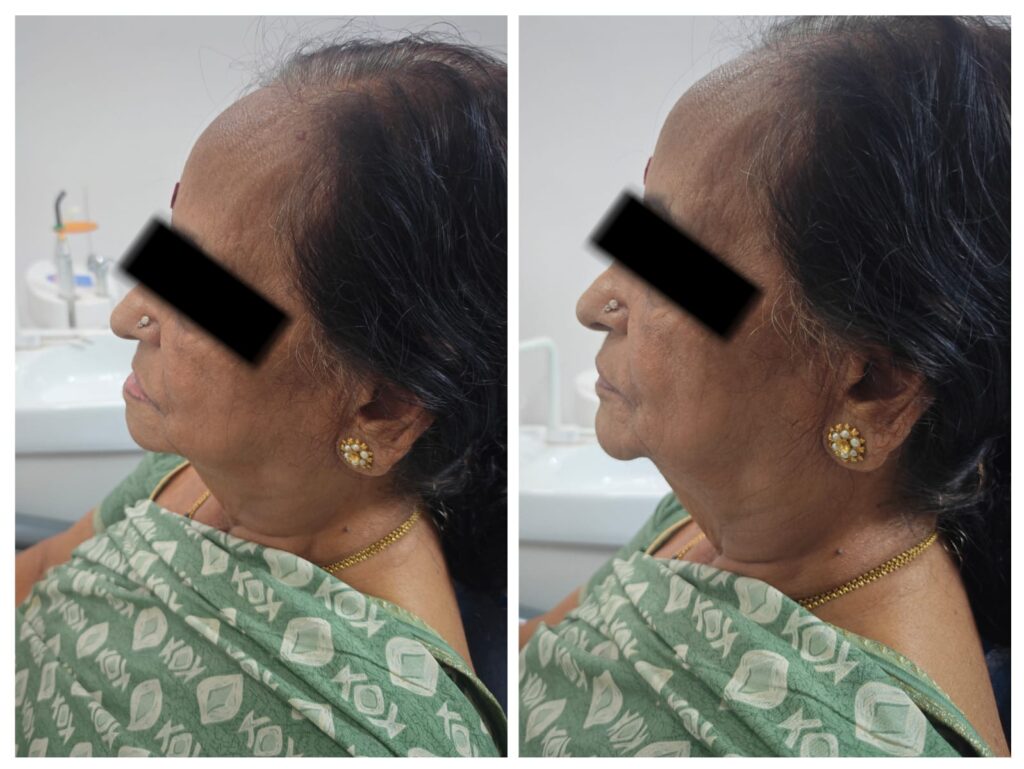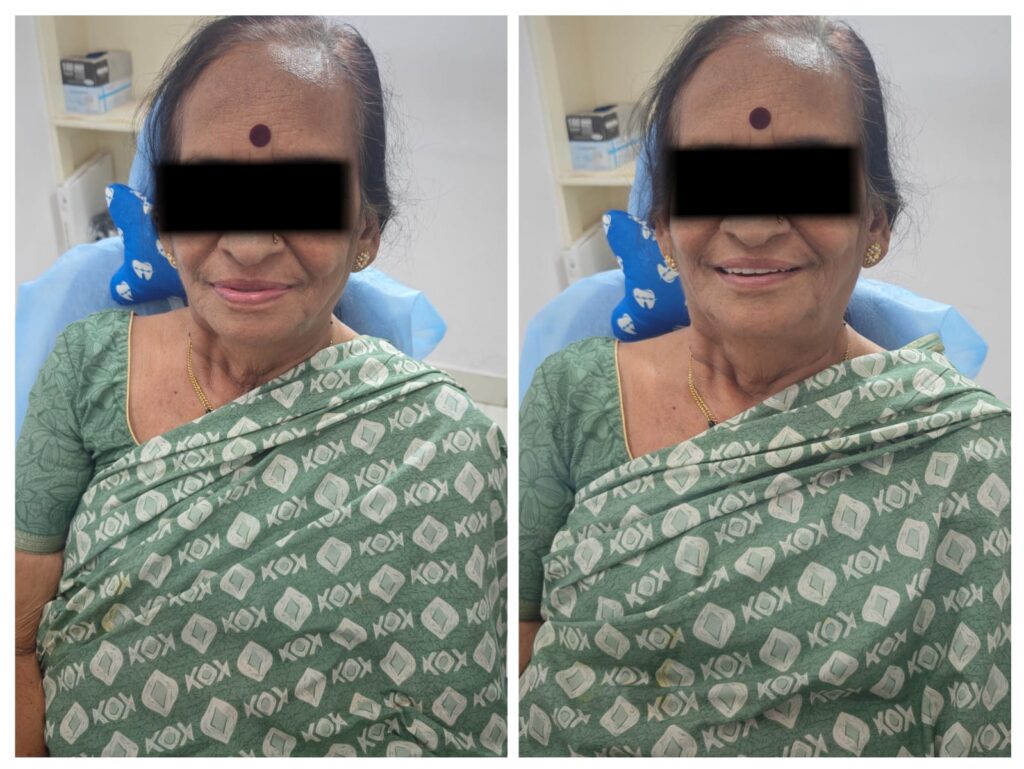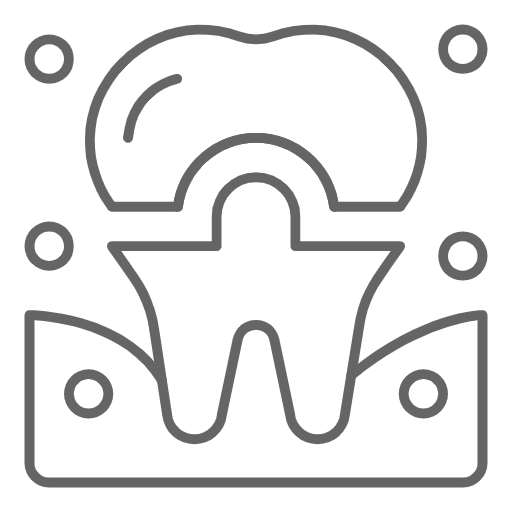Removable Complete and Partial Dentures
Removable dentures are dental appliances that replace one or more missing teeth in the upper or lower jaw. They are called “removable” because they can be taken out of the mouth for cleaning and maintenance. The components of a denture include
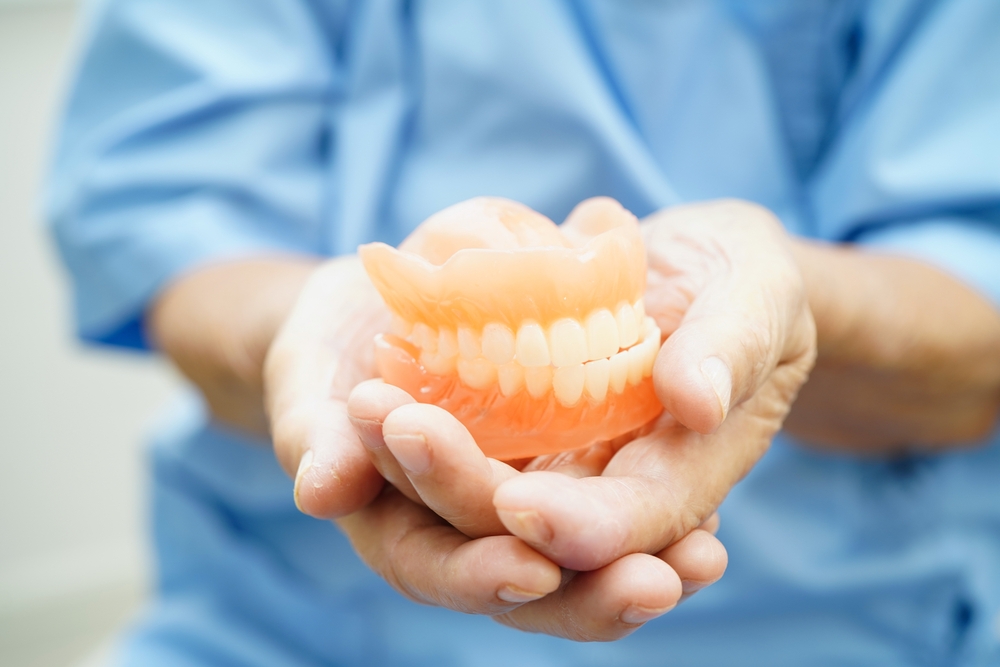
Artificial teeth (acrylic or ceramic)
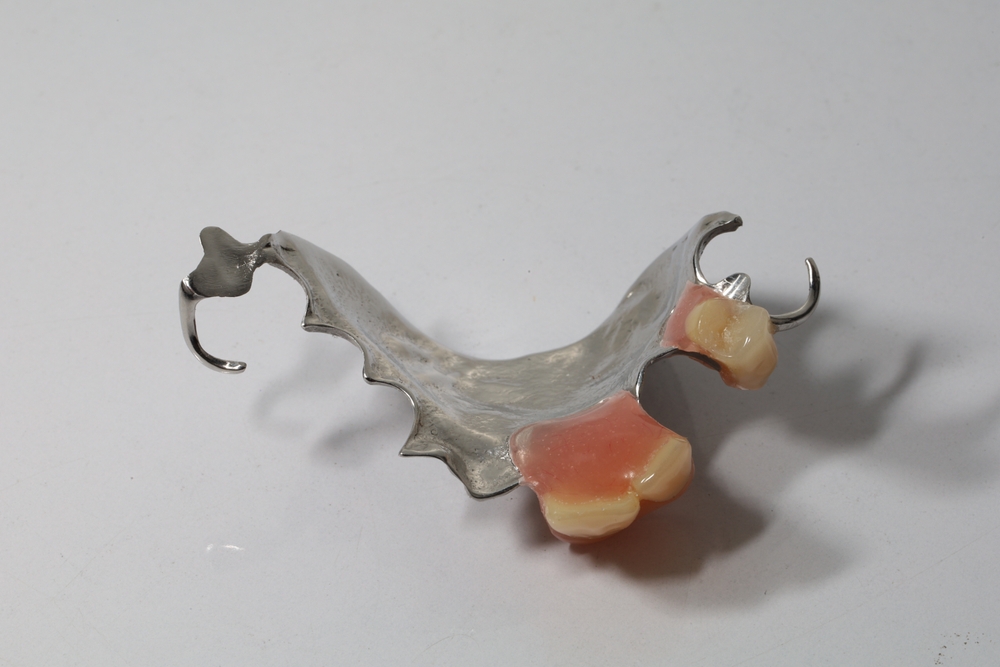
Metal framework (cobalt-chromium or titanium)
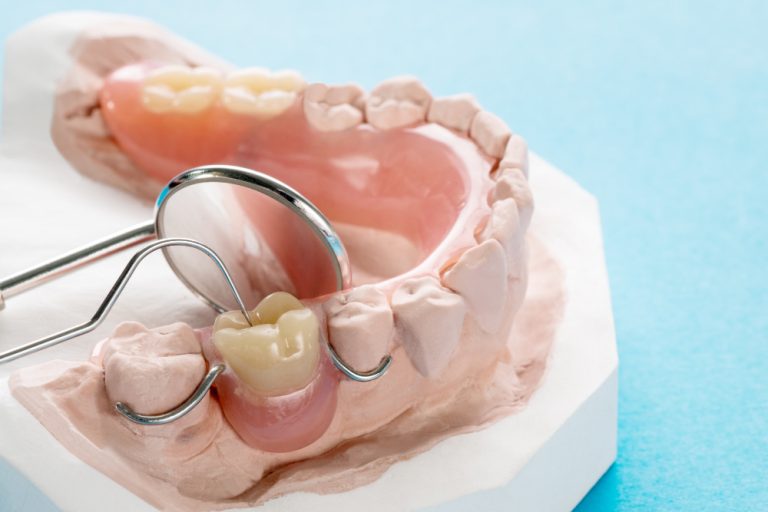
Clasps (hooks) that hold the RPD in place
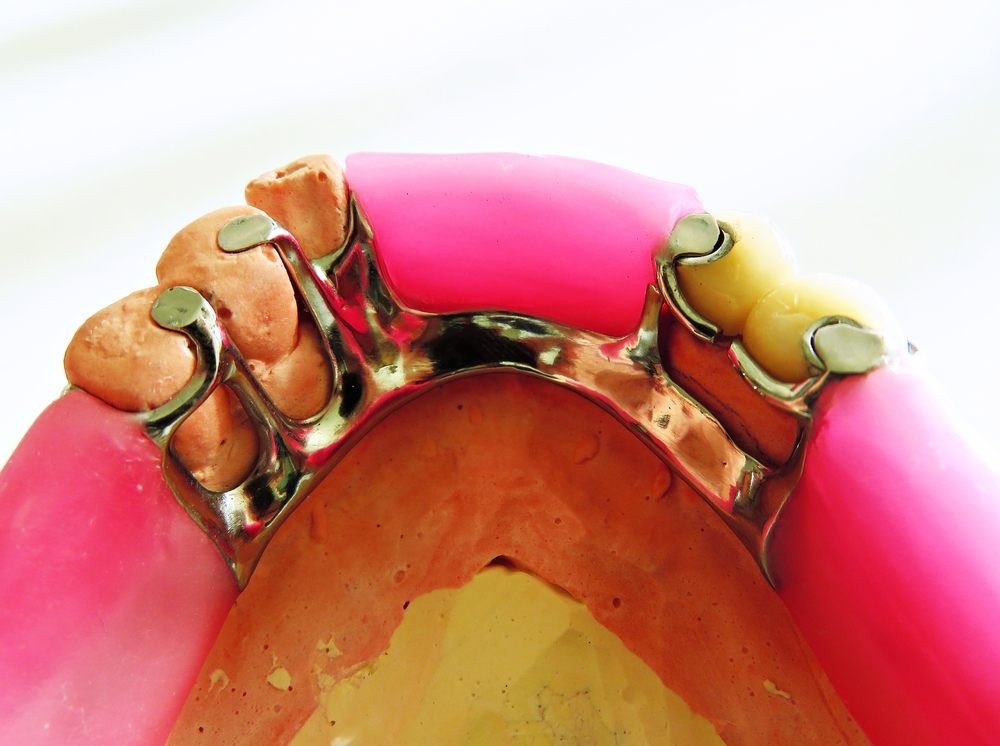
Rests (supports) that distribute forces to adjacent teeth
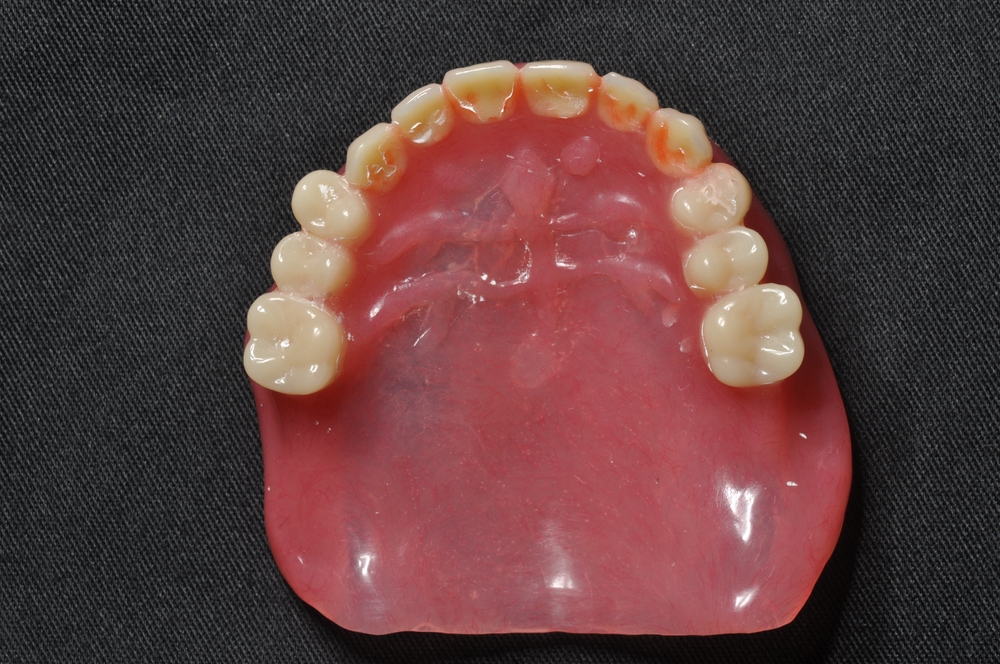
Acrylic base (gums and teeth
The stages of edentulousness are
Why is it important to replace a tooth?
Several aspects contribute to the relevance of replacement of missing teeth.
The primary function of our teeth is chewing, by which food is broken down for proper digestion.Missing teeth can lead to difficulty chewing and digesting food, which can affect overall health. In the long run as and when a tooth is missing, surrounding teeth may gradually shift or tilt into the gap, leading to orthodontic issues and bite problems which leads to temporomandibular joint issues.

Gaps in teeth can also impact pronunciation and speech clarity and when coming to the disease part , missing teeth can create areas prone to plaque accumulation and infection. Apart from that, any tooth loss is associated with bone resorption . So loss of mandibular teeth lead to jawbone resorption, leading to changes in facial structure and appearance. This stage attributes itself to aesthetic concern and a good smile.The patient loses self-confidence and self-esteem.
To add on to above mentioned consequences, some research suggests links between tooth loss and systemic health issues like heart disease, diabetes, and cognitive decline.
Types of Dentures
Acrylic Denture (APD): Temporary or transitional partial or complete denture
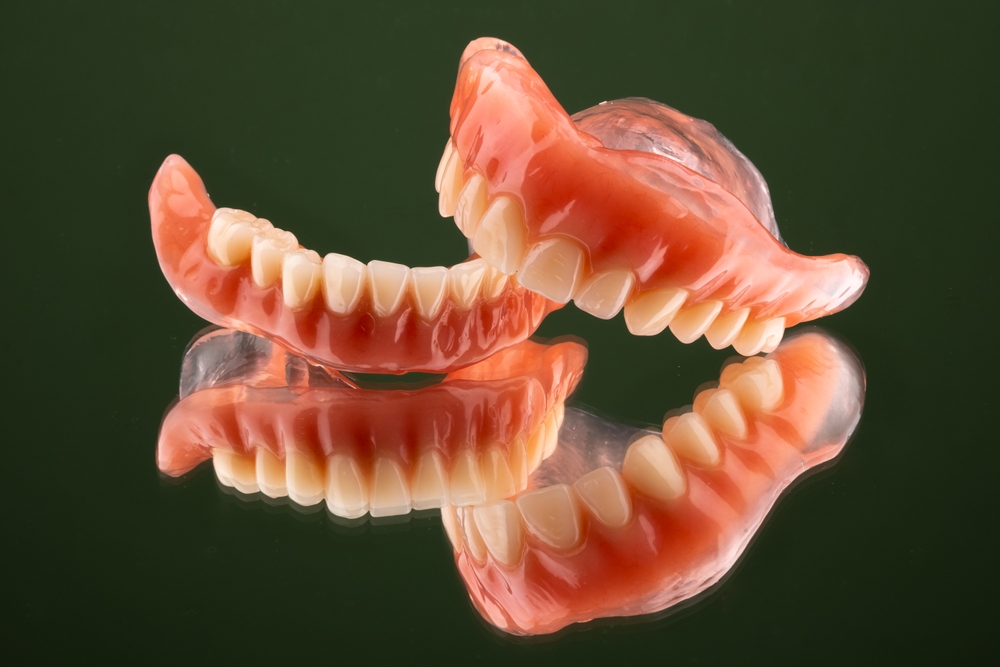
These are a type of removable partial denture made from acrylic resin. They are a cost-effective and temporary solution for replacing missing teeth. These are most affordable and easily fabricated and adjustable It is composed of:
- Acrylic base (gums and teeth)
- Artificial teeth (acrylic or ceramic)
- Clasps (hooks) to hold the denture in place
- Rests (supports) for distribution of forces
When it is indicated to give rpds?
- Temporary replacement of missing teeth
- Transitional denture during implant or bridge placement
- Economic alternative for patients with limited budget
- Patients with low occlusal forces
- Patients with sensitive teeth or gums
Contraindications:
- High occlusal forces
- Patients with severe gum recession or bone loss
- Patients with allergies to acrylic materials
- Long-term use (may lead to bone resorption or tissue irritation)
Cast partial denture (CPD): Metal framework and artificial teeth.
CPDs are a type of removable partial denture made from a metal framework, typically cobalt-chromium or titanium, and artificial teeth. They are a more durable and long-lasting option compared to acrylic partial dentures. They are less likely to stain and withstand high occlusal forces.However it requires more chair time and laboratory work and additional procedures (e.g., impressions, try-ins) for its processing. Patient may need an adjustment period before it’s use.
Components of cpds are:
- Metal framework (cobalt-chromium or titanium)
- Artificial teeth (acrylic or ceramic)
- Clasps (hooks) to hold the denture in place
- Rests (supports) for distribution of forces
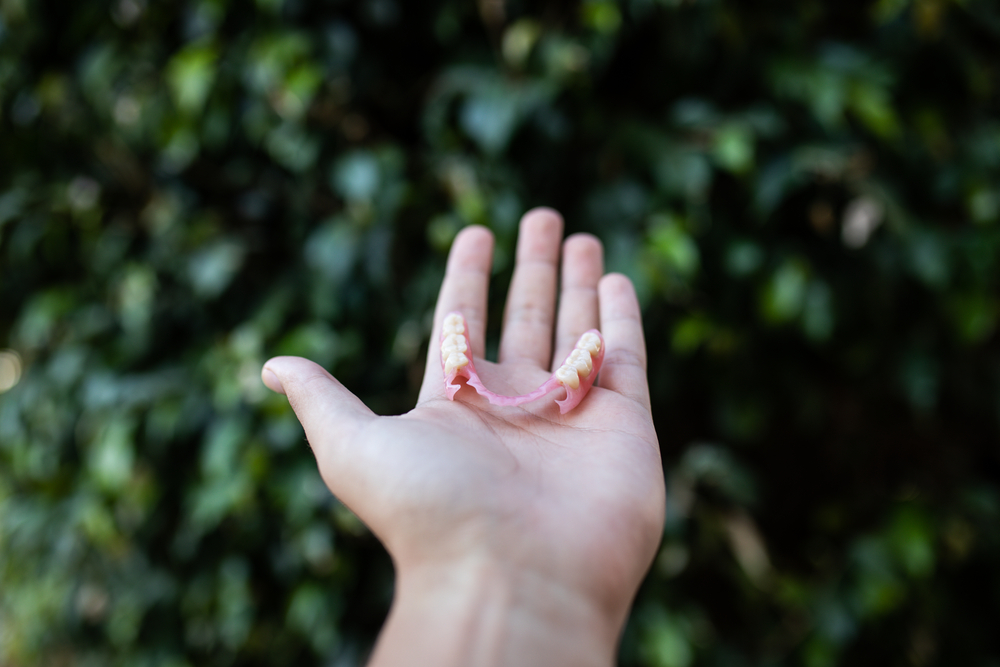
Indications for it’s usage are:
- Long-term replacement of missing teeth
- Patients with high occlusal forces
- Patients with moderate to severe gum recession or bone loss
- Patients seeking a more durable and stable option
- Patients with sufficient space for the metal framework
Contraindications include:
- Patients with allergies to metal materials
- Patients with limited budget
- Patients with minimal tooth loss
- Patients with poor oral hygiene
- Patients with unrealistic expectations
Flexible partial denture (FPD): Valplast or nylon-based partial or complete
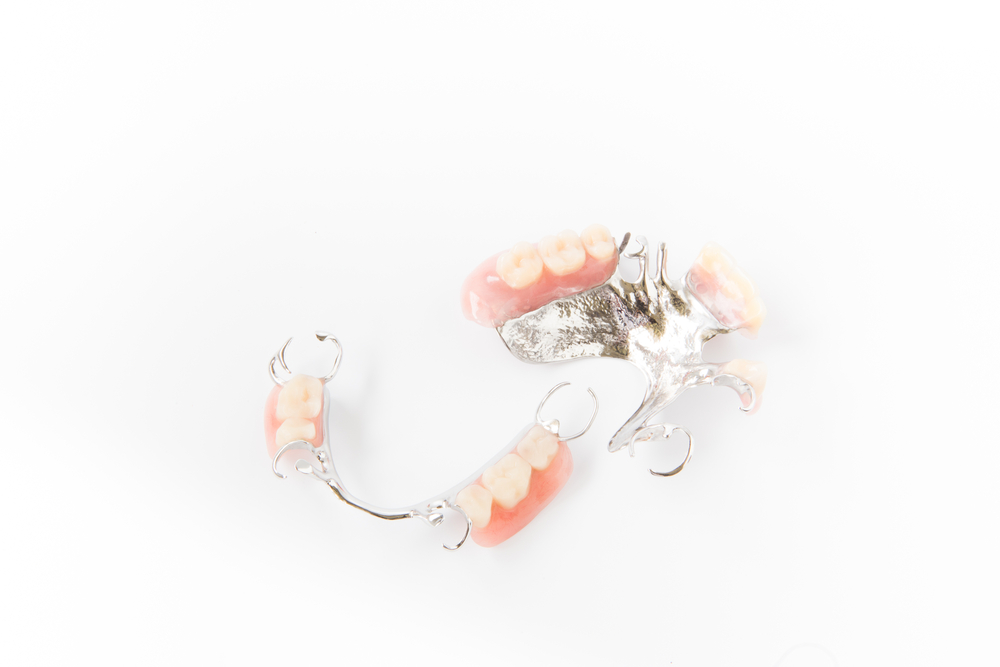
Flexible dentures are a type of removable partial denture made from a flexible material, such as nylon or valplast. They are a comfortable and aesthetically pleasing option for replacing missing teeth. As the name suggests they are flexible and unbreakable. Moreover they are metal free and easy to clean and maintain.
But it has a limited durability compared to cast partial dentures.
These consists of:
- Flexible material (nylon or valplast)
- Artificial teeth (acrylic or ceramic)
- Flexible acrylic (hooks) to hold the denture in place
Indications
- Patients seeking a comfortable and aesthetically pleasing option
- Patients with sensitive gums or teeth
- Patients with limited budget
- Patients with realistic expectations
Contraindications
- Patients with high occlusal forces
- Patients with severe gum recession or bone loss
- Patients with limited space for the flexible material
- Patients with unrealistic expectations
- Patients with poor oral hygiene
Overall, flexible dentures are a suitable option for patients seeking a comfortable and aesthetically pleasing solution for replacing missing teeth. However, they may not be suitable for everyone, and your dentist will help determine the best option for your specific needs.
Implant-supported Partial and Complete denture:
Implant-supported removable partial and complete dentures are a type of denture that combines the benefits of dental implants and removable partial dentures. They are a popular option for patients who are missing multiple teeth and want a more secure and stable solution.
They have an improved stability and retention enhancing increased chewing efficiency. It has a reduced gum irritation as it is implant supported and can be used in conjugation with other dental treatments (e.g., crowns, bridges).
Above all it is the most durable and long-lasting replacement of missing teeth.
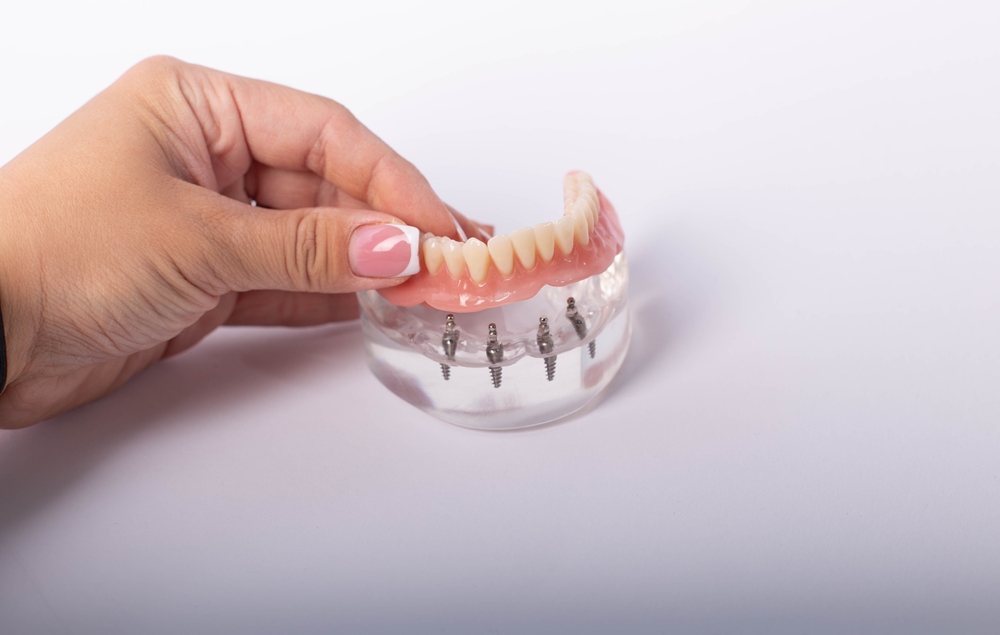
It has following components:
- Dental implants (titanium or zirconia)
- Implant-supported framework (metal or ceramic)
- Artificial teeth (acrylic or ceramic)
- Clasps (hooks) to hold the denture in place
- Rests (supports) for distribution of forces
Indications
- Patients with multiple /all missing teeth
- Patients with sufficient bone density for implants
- Patients seeking a more stable and secure solution
- Patients with a history of denture instability or discomfort
- Patients with realistic expectations
Contraindications
- Patients with insufficient bone density for implants
- Patients with poor oral hygiene
- Patients with unrealistic expectations
- Patients with certain medical conditions (e.g., uncontrolled diabetes)
- Patients with limited financial resources
Overall, these offer a reliable and aesthetically pleasing solution for patients with multiple missing teeth. However, they may not be suitable for everyone, and your dentist will help determine the best option for your specific needs.
What are the benefits of Removable Dentures?
As a replacement of missing teeth, it restores chewing and speaking functions supporting adjacent teeth and gums. Moreover, these removable dentures enhance appearance and self-confidence. When compared to fixed bridges or implants it’s more cost effective and they can be easily adjusted or relined as needed.
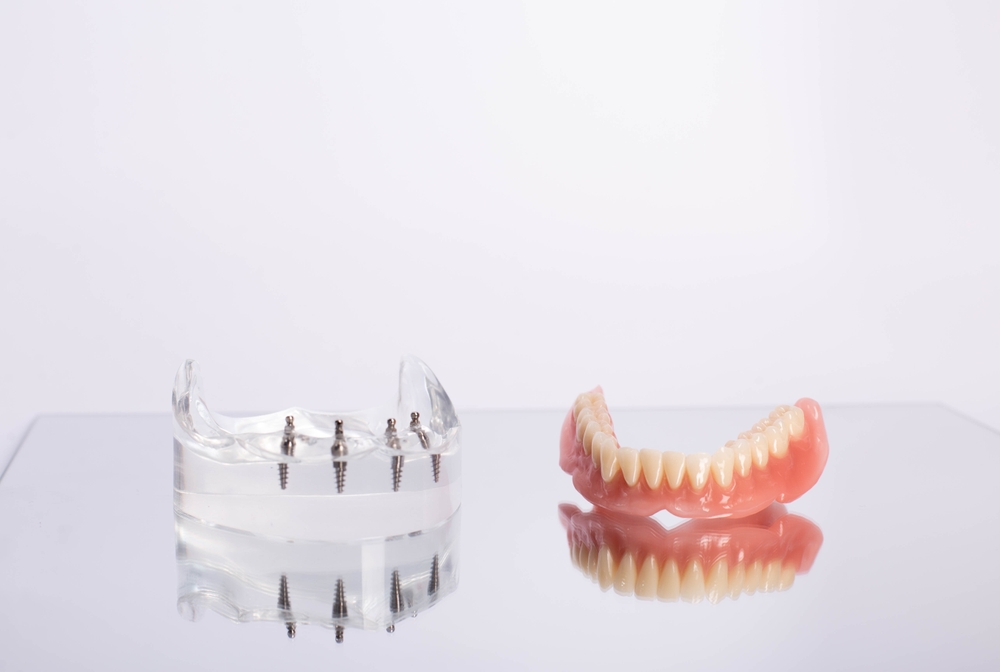
Care and maintenance of
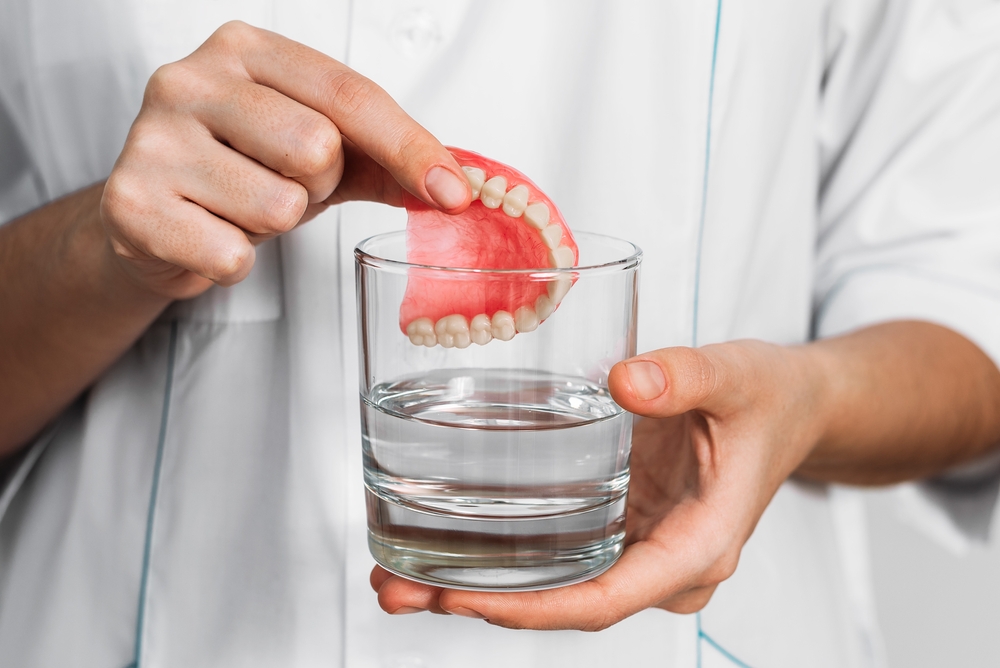
Why choose Implant over Removable Dentures?
Removable dentures may take time to get used to wearing. These can indeed cause discomfort or irritation. When it comes to maintenance, a well charted cleaning and maintenance protocol is needed for it. Further there are chances of it affecting taste or speech. The durability is also not as much as fixed restorations.
Though dentures are a cost-effective and practical solution for replacing missing teeth, implants emerge as the most durable and sustaining solution. But it’s essential to consult us to determine the option best for you.
FAQs
Removable dentures are artificial teeth and gums that can be taken out and put back in the mouth.
People with missing teeth, gum disease, or tooth decay may benefit from removable dentures.
There are partial dentures (for some teeth) and complete dentures (for all teeth).
Impressions are taken, and dentures are created to match the individual's mouth.
With proper care, dentures can last 5-10 years or more.
Clean them daily, store them in water or a denture cleaner, and avoid harsh chemicals.
Yes, but avoid sticky or hard foods, and chew slowly.
Initially, but you'll adapt quickly.
No, remove them at night to allow gums to rest.
Regular check-ups (every 6 months) to ensure a proper fit and oral health.

